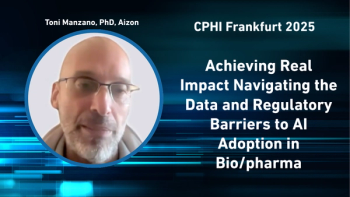
Toni Manzano, PhD, discusses his CPHI Europe presentation, stating that AI is essential for managing complex drug and biologics manufacturing.

Toni Manzano, PhD, discusses his CPHI Europe presentation, stating that AI is essential for managing complex drug and biologics manufacturing.

Toni Manzano, PhD, Azion, says AI integration in drug manufacturing necessitates regulatory risk assessment, cloud infrastructure for big data, and strict data integrity compliance.


According to a CPHI Frankfurt keynote panel, Europe's biopharma sector must accelerate adaptation to new regulations to stay competitive with the US and China.

Toni Manzano, PhD, Aizon, says AI adoption in biopharma, supported by new GXP guidelines, is challenged by poor data quality and the complexity of industrializing many specific models.

Organ-on-chip platforms and AI integration are revolutionizing drug development, personalizing medicine, and advancing pharma research, says React4Life’s Silvia Scaglione.
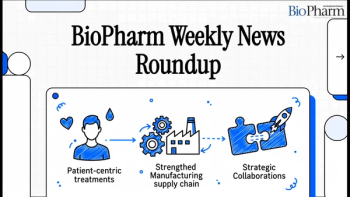
News from the week emphasizes improvement of patient access and supply-chain resilience through AI-driven manufacturing and digital traceability.

In episode 27, Christopher Hopkins, PhD; Omkar Kawalekar, PhD; Barnaby Pickering; and Jerry Rosenbaum, MD, go behind the headlines.
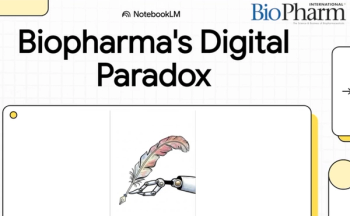
The BioPharm International biopharma industry report on digital transformation uncovers an adoption paradox. This video summarizes our findings.
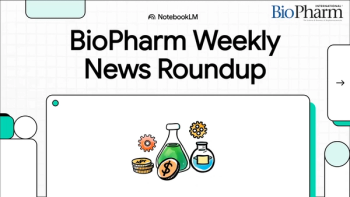
This week’s news highlights biopharma R&D’s focus on new biologics and CGT innovation, with growth fueled by AI adoption and significant investments into market expansion.

As cell and gene therapy is poised to play a major role in the future of medicine, it’s important to know the basics.
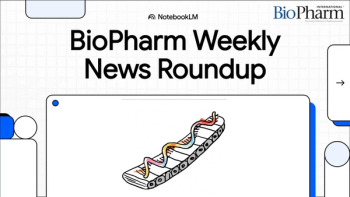
Scaling biopharma innovation demands advanced manufacturing, global market expansion, and solving patient access barriers.

Comparing our survey results with recent headlines uncovered biopharma’s digital transformation paradox: high potential vs. low adoption.

By licensing Talicia to priority markets, RedHill targets growing antibiotic resistance to the cancer-associated H. pylori bacteria with an FDA-approved, fixed-dose therapy
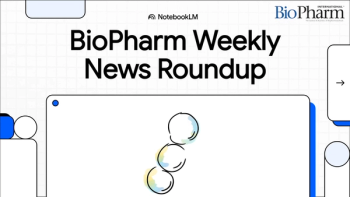
In this week’s news, industry shifts are marked by new FDA draft guidances, Pfizer’s agreement to MFN pricing, Novartis’ launch of DTP distribution, and AI-driven protein design.

Pfizer re-balances weight loss portfolio with Metsera, Bristol Myers Squibb and Roche make breast cancer progress, and Keytruda gets under your skin.
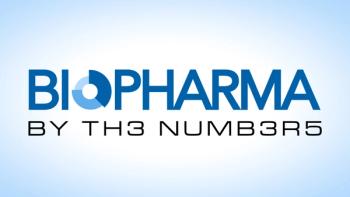
The inaugural BioPharma By the Numbers provides a data-driven look at how automation in bioprocessing is driving efficiency, reducing errors, and addressing capacity challenges.
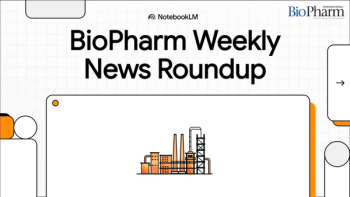
This week’s roundup highlights US manufacturing localization via tariffs, Pfizer’s $4.9 billion deal, and new tech in CRISPR, RNA, and continuous processing.

The 100% tariff on imported drugs will pressure biopharma companies to build manufacturing sites in the US or face significant costs.

Alvin Jogasuria, ProBio; Matthew Lunning, University of Nebraska Medical Center; and Carl Schoellhammer, DeciBio, go behind the headlines to discuss the need for doing more with less.

In the first-ever “Two-Minute Mysteries: BioPharma Stories,” Agilent’s Ken Boda shares the mystery of a low reading.
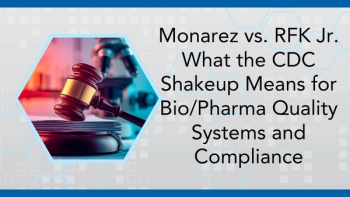
Ex-CDC head Susan Monarez testifies she was fired for resisting RFK Jr.'s pressure to sideline science, raising alarms for bio/pharma's regulatory stability.
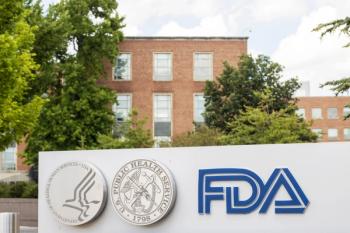
Paul Offit removed from FDA vaccine panel as RFK Jr. reshapes US immunization policy, raising concerns for bio/pharma and regulation.
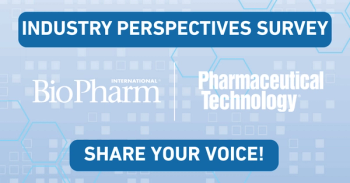
At a critical turning point in the adoption of digital tools across the bio/pharma industry, we want to hear from industry professionals on where things actually stand.
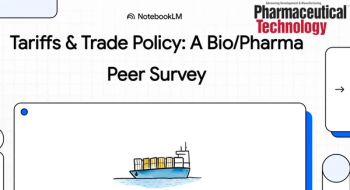
This video clips offers topline findings from our survey of nearly 90 bio/pharma professionals on the impacts of Trump-era tariffs and trade policy.

FDA cites Indiana drug plant for contamination, pest issues, and unresolved equipment failures, raising concerns over pharma manufacturing quality.

The US-EU pharma tariff cap has been finalized at 15%, impacting manufacturing, supply chain, and quality and promoting domestic production and resilience.
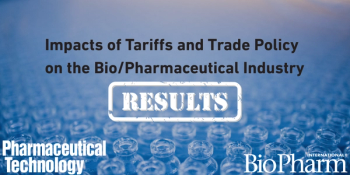
Survey responses indicate that bio/pharma faces tariff-driven rising costs and supply strain, with firms aiming to boost compliance and diversification and seeking stable trade and R&D support.
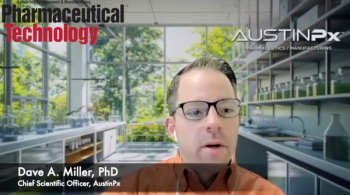
Dave Miller, PhD, explains how early formulation planning, novel platforms, and tailored approaches secure long-term protection against generics.

Dave Miller, PhD, explains how environmental audits, waste reduction, and supply chain security are reshaping priorities in pharmaceutical manufacturing.